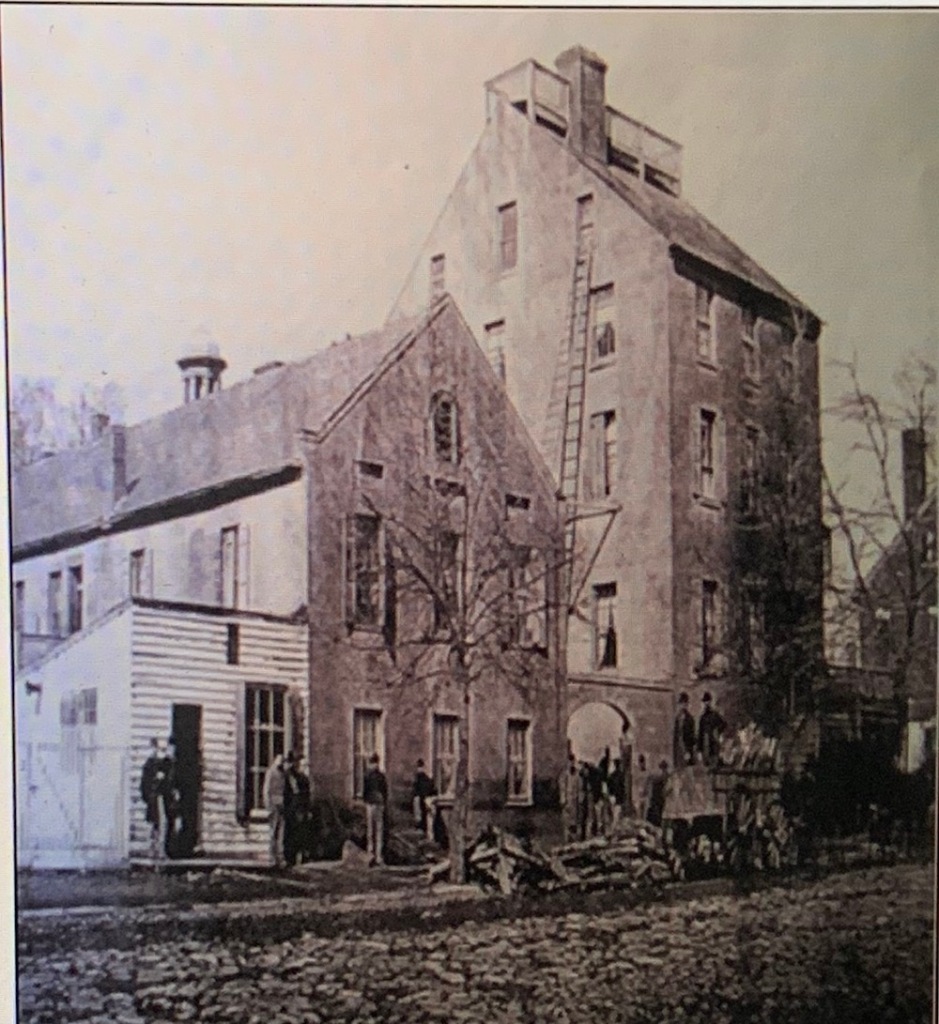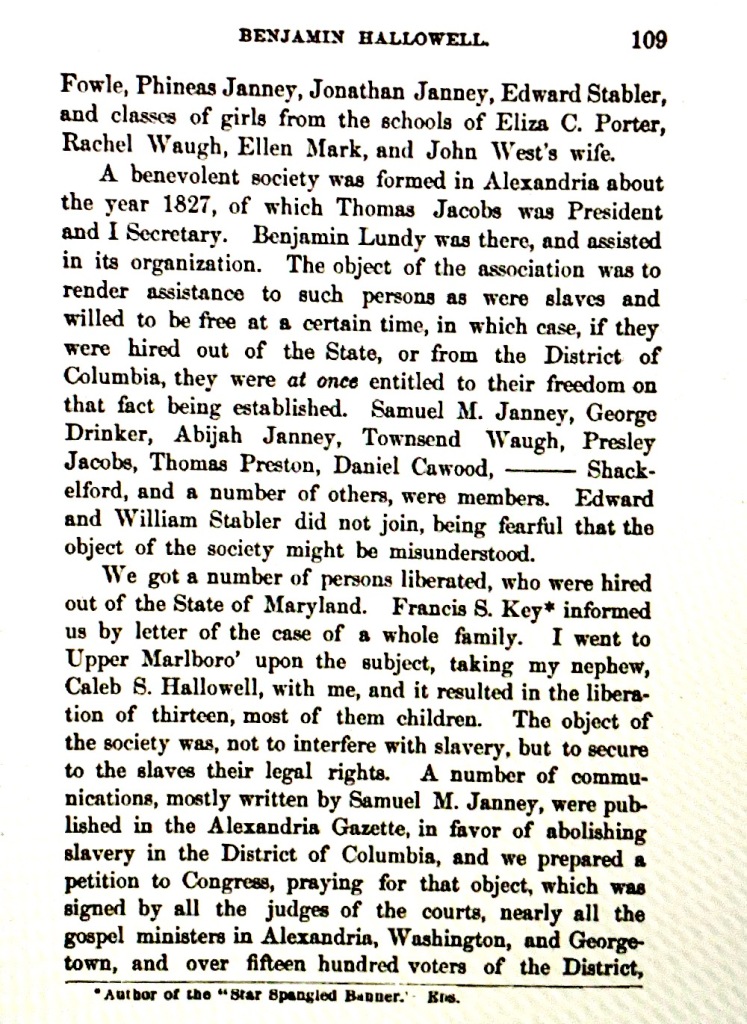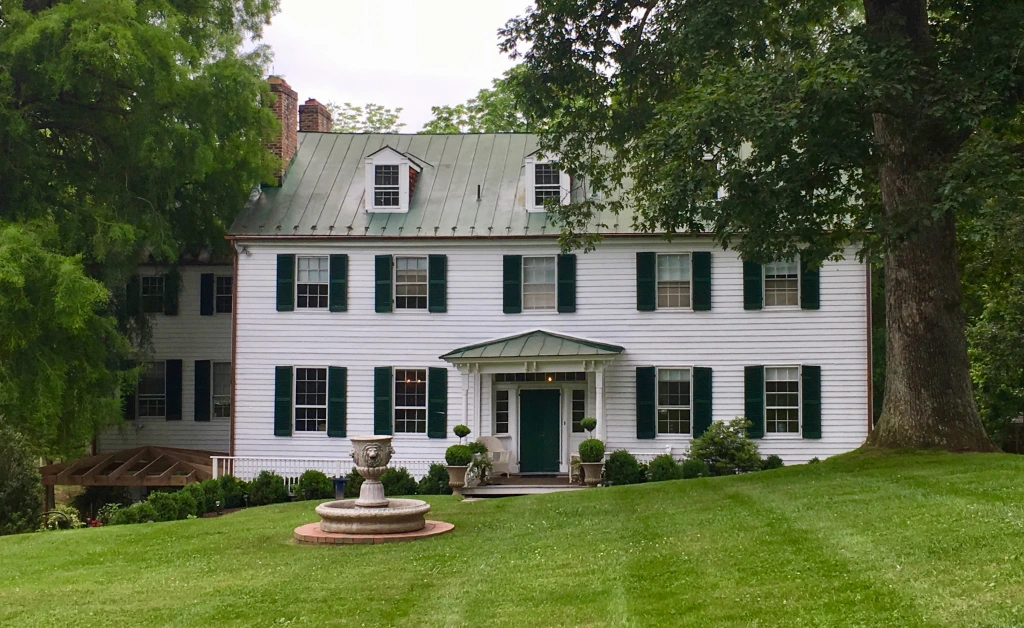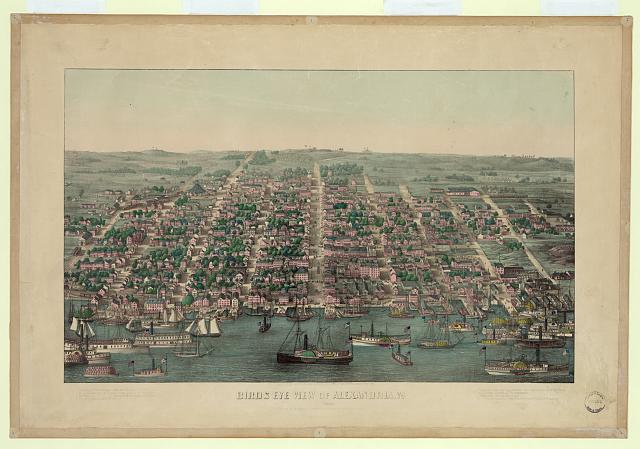
Benjamin Hallowell (1799-1877) devoted his adult life to education; in 1824 he founded a prepatory school in Alexandria, Virginia. Before moving to Goose Creek (Lincoln) in Loudoun County, young Samuel McPherson Janney and his wife, Elizabeth, lived in Alexandria, Virginia. In January, 1825, Samuel began attending night classes in Hallowell’s Alexandria school. Janney studied mathematics, believing his own grounding in that subject to be weak. Elizabeth Janney had a connection to Benjamin Hallowell, too. Her step-mother, Ann Shoemaker Janney, was Benjamin Hallowell’s cousin.
Hallowell’s school grew more and more successful. By the 1830’s prominent families sent their children to board or as day students at the school; young Robert E. Lee attended the school, as well as the children of congressmen and other government officials.


Hallowell wrote an autobiography that can be read online; it gives details of his full life, with its focus on teaching. During his years in Alexandria, Hallowell was an important member of the town’s Quaker community. Samuel and Elizabeth Janney had similar interests as Hallowell, particularly in the importance of education. Classes for girls opened up as well.
The Janneys and the Hallowells, like most Quakers, held anti-slavery beliefs. According to the City of Alexandria, Virginia website: “The Society of Friends was particularly active in encouraging gradual abolition, with or without colonization. Formed in Alexandria in 1827, a Quaker-led “Benevolent Society for Ameliorating and Improving the Condition of the people of Color” assisted with manumissions and published a series of anti-slavery essays.” Samuel M. Janney wrote the series of anti-slavery essays referred to on the City of Alexandria website; the essays were published in the Alexandria Gazette. They can be read here.

In his autobiography, Benjamin Hallowell mentions the “Benevolent Society” and lists some of its members:


In the late 1830’s, Elizabeth Janney inherited money from her father John Janney’s estate. Perhaps influenced by the Hallowells, Elizabeth and Samuel decided to use Elizabeth’s inheritance money to open a school. The Janneys moved 45 miles away from sophisticated Alexandria to the little village of Goose Creek (which in 1866 would be re-named “Lincoln.”) There, they established a girls’ boarding school, “Springdale.” Samuel Janney in his Memoirs, wrote about that decision:

“In the year 1839…my business as a cotton manufacturer at Occoquan proved to be unsuccessful. When my partner and I entered into it we thought we had sufficient capital to build the factory, but the cost being greater than we expected we had to go in debt to a considerable amount. In addition to this disadvantage we had no knowledge of the business and consequently were dependent upon our employes concerning whose qualifications we were not competent to judge. Without entering into a detailed account of our embarrassments and struggles, it may be sufficient to say, that all our efforts to meet our engagements having proved ineffectual, I concluded to leave Occoquan and remove to Loudoun County in the year 1839 with the prospect of opening a boarding school for girls.
“I brought with me nothing but my household furniture, and the sum of fourteen hundred and fifty dollars belonging to my wife, the proceeds of a farm derived from her father’s estate.
“This money I invested for my wife, in a lot, and in building a house for the boarding school which we called Springdale. I obtained the assistance of an experienced and competent female teacher; our school was opened with favorable prospects, and soon became popular and moderately profitable.
“It was a great relief to escape from the care and turmoil of uncongenial and unsuccessful business, and to be engaged in the instruction of youth, an employment that suited my taste and brought the reward of peace.”
By 1859 Benjamin Hallowell was back in Maryland, where he founded and served as President of Maryland Agricultural College, which eventually became the University of Maryland. He remained very active within the Quaker faith community, frequently traveling on Quaker business. On July 1, 1861, Benjamin Hallowell is listed in the Quaker minutes as having been a guest at Goose Creek Meeting, in Lincoln, Virginia.
Benjamin Hallowell lived to see slavery ended, and his abolitionist beliefs vindicated. He died in 1877, a respected Friend.

Pingback: Henry, dead or alive – Nest of Abolitionists